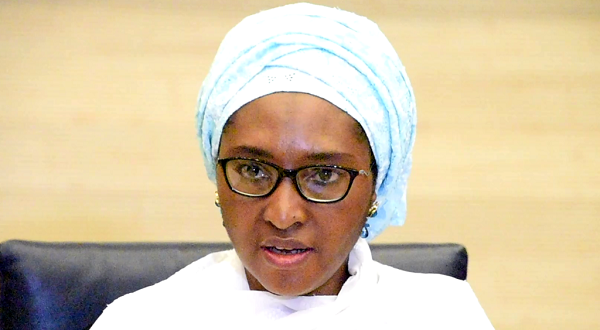Business
Nigerian govt reveals date for fuel subsidy removal

The Minister of Finance, Budget and National Planning, Zainab Ahmed, has lamented the increasing pressure on Nigeria’s revenue due to daily fuel subsidy payment.
Ahmed, who spoke at a panel discussion at the ongoing 27th National Economic Summit (NES) described the payments as a major hindrance to Nigeria’s economic goals.
She stated that actions are being taken to stop the payment, which is why there is no provision for payment of subsidies after the first six months of 2022.
“In our 2022 budget, we only factored in subsidy for the first half of the year; the second half of the year, we are looking at complete deregulation of the sector, saving foreign exchange and potentially earning more from the oil and gas industry,” she said.
“We are very uncomfortable at the fact that we have borrowed at the quantum exceeding the threshold that is outlined by the Fiscal Responsibility Act, and must plug all holes to save what we have”
Also speaking, World Bank Country Director for Nigeria, Shubham Chaudhuri expressed surprise that Nigeria was spending so much on fuel subsidy amid scarce revenue.
He called for some critical decisions to be made now for the country to realise its potential.
Chaudhuri said, “I think the urgency of doing something now is because the time is going in terms of retaining the hope of young Nigerians in the future and potential of Nigeria. The kinds of things that could be done right away – the petrol subsidy; yes, I hear that six months from now, perhaps with the PIA(Petroleum Industry Act) coming into effect, this will go away.
Read also: Fuel subsidy a rich man’s scam that cannot be allowed to go on —Sanusi
“But the fact is can Nigeria even afford to wait for those six months? And there is a choice: N3tn to PMS subsidy which is depriving states of much-needed revenues to invest in basic services.”
Ripples Nigeria had consistently reported on the monthly payments made on subsidy, which is on course to hit N2.9 trillion by December.
The N2.9 trillion is almost 44.27 percent of the entire 6.28 trillion proposed budget deficit for next year.
It is also more than half of the N5.02 trillion the Nigerian government is looking at borrowing to fund next year’s budget deficit.
Join the conversation
Support Ripples Nigeria, hold up solutions journalism
Balanced, fearless journalism driven by data comes at huge financial costs.
As a media platform, we hold leadership accountable and will not trade the right to press freedom and free speech for a piece of cake.
If you like what we do, and are ready to uphold solutions journalism, kindly donate to the Ripples Nigeria cause.
Your support would help to ensure that citizens and institutions continue to have free access to credible and reliable information for societal development.
























